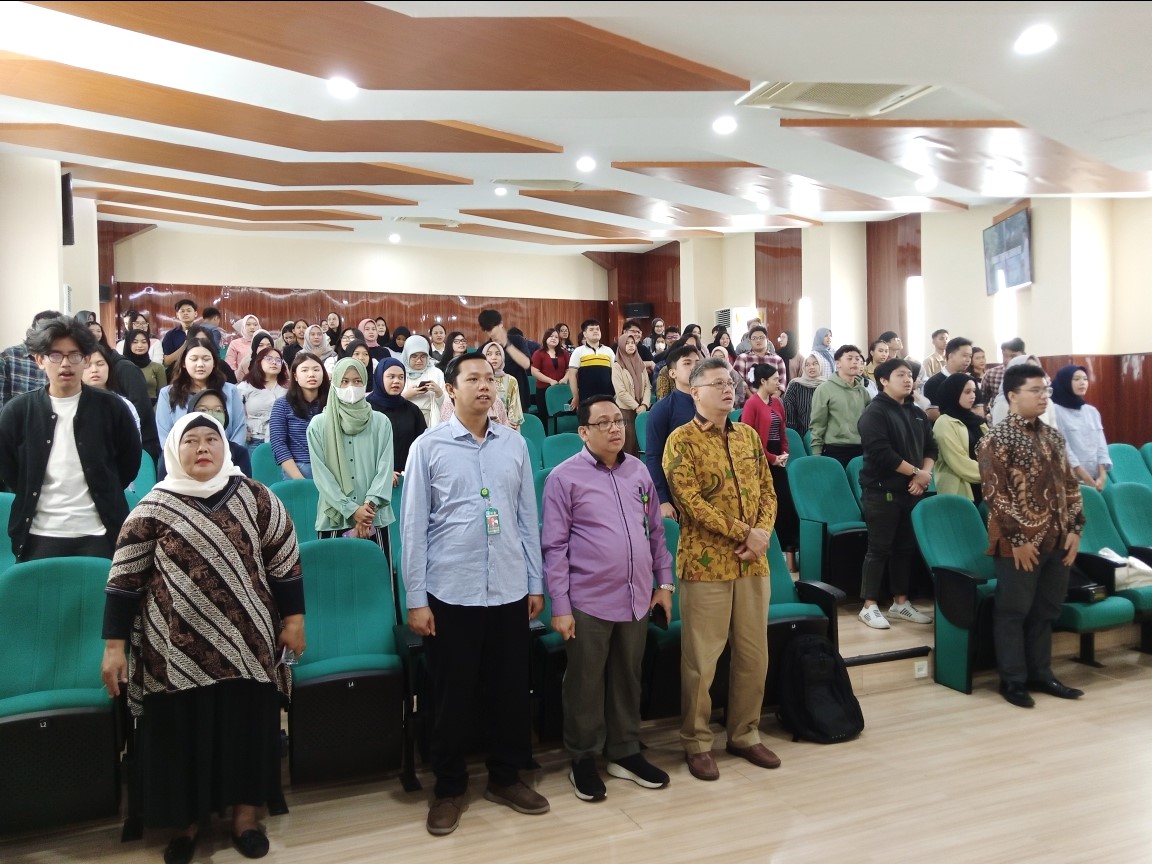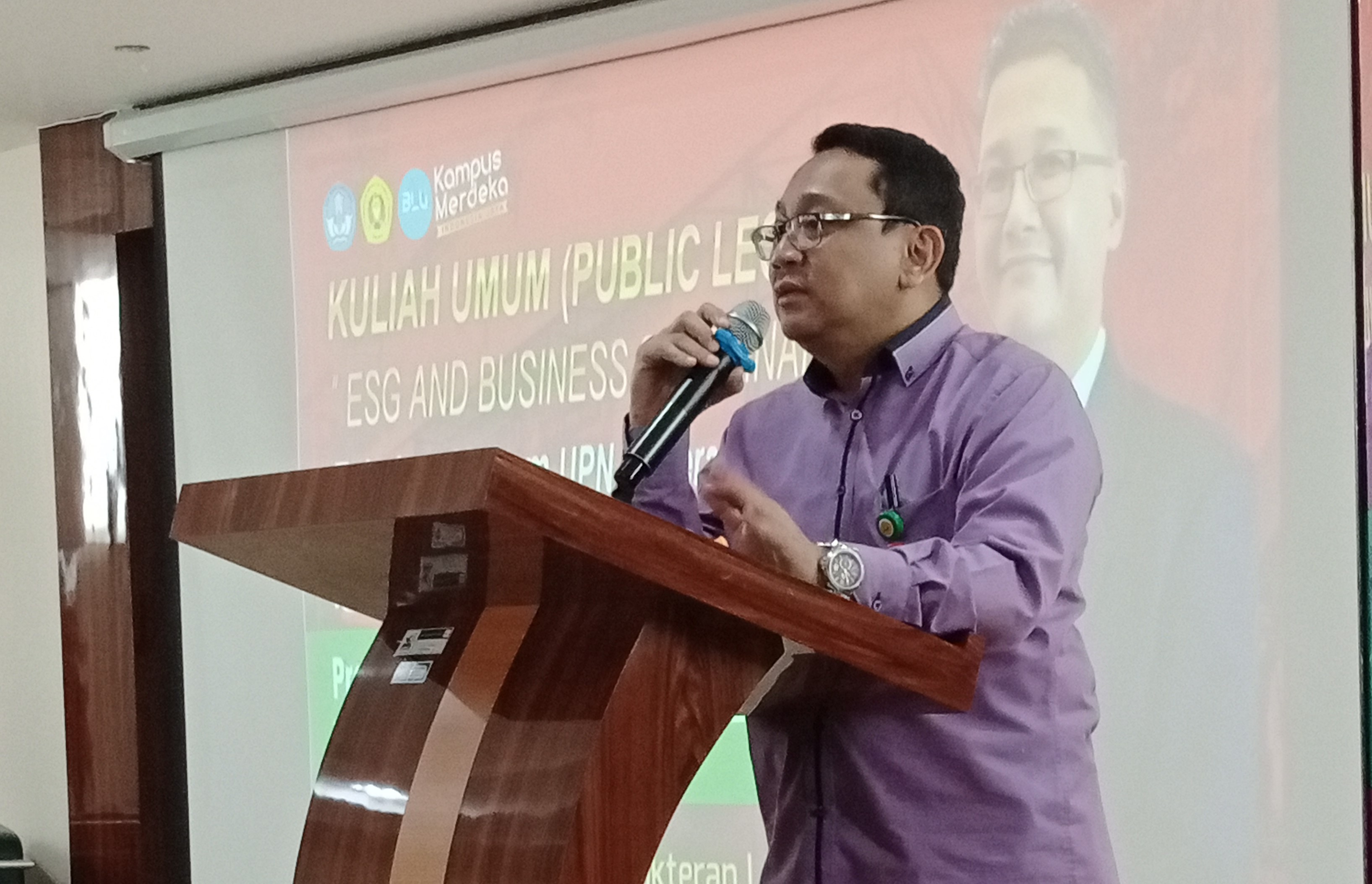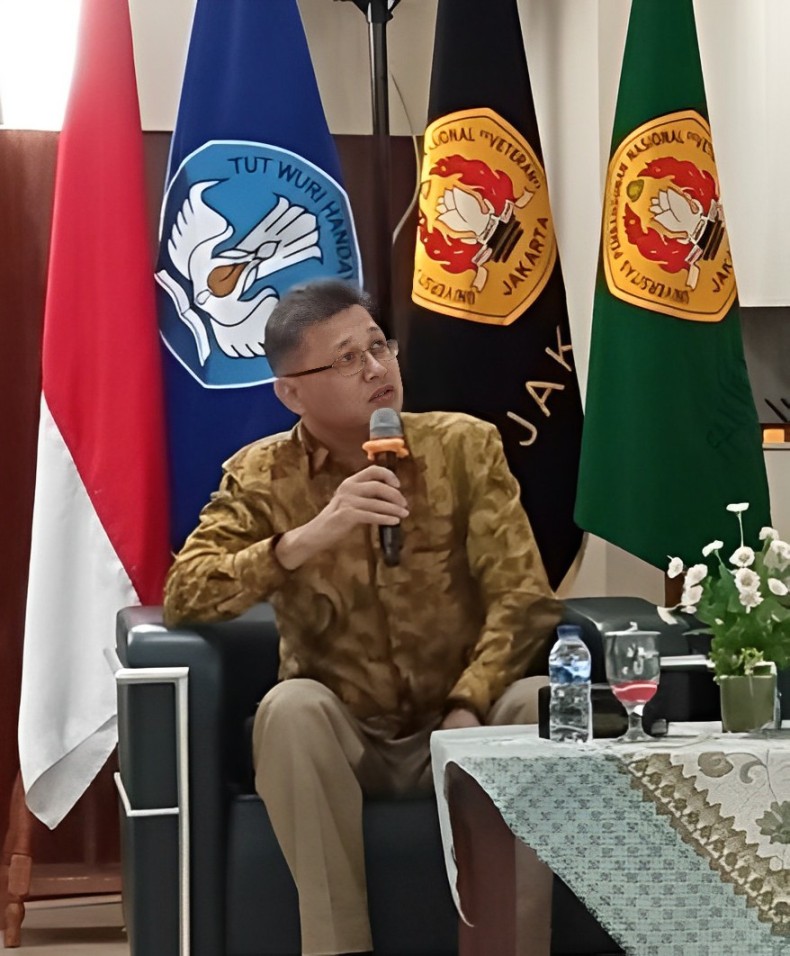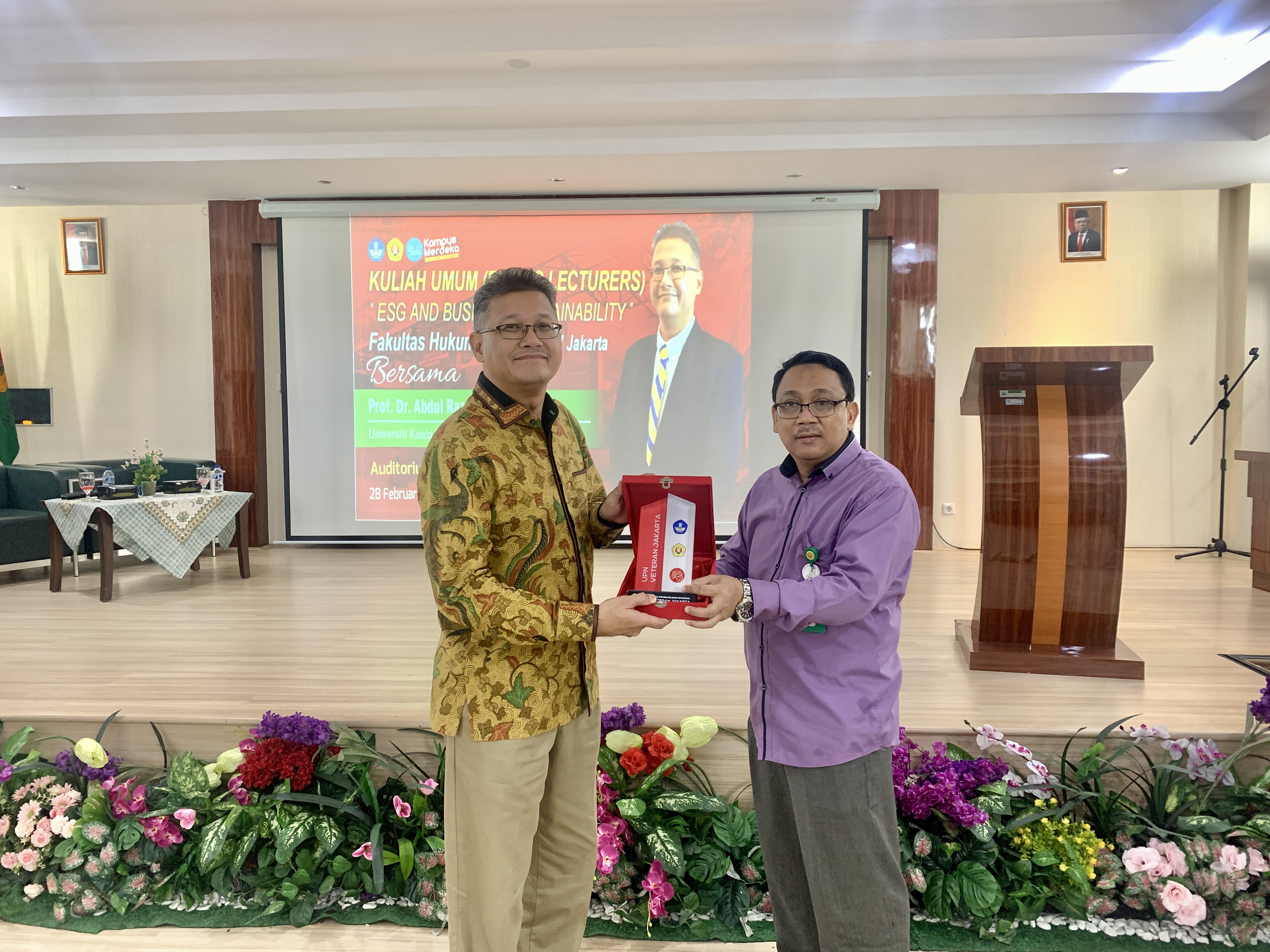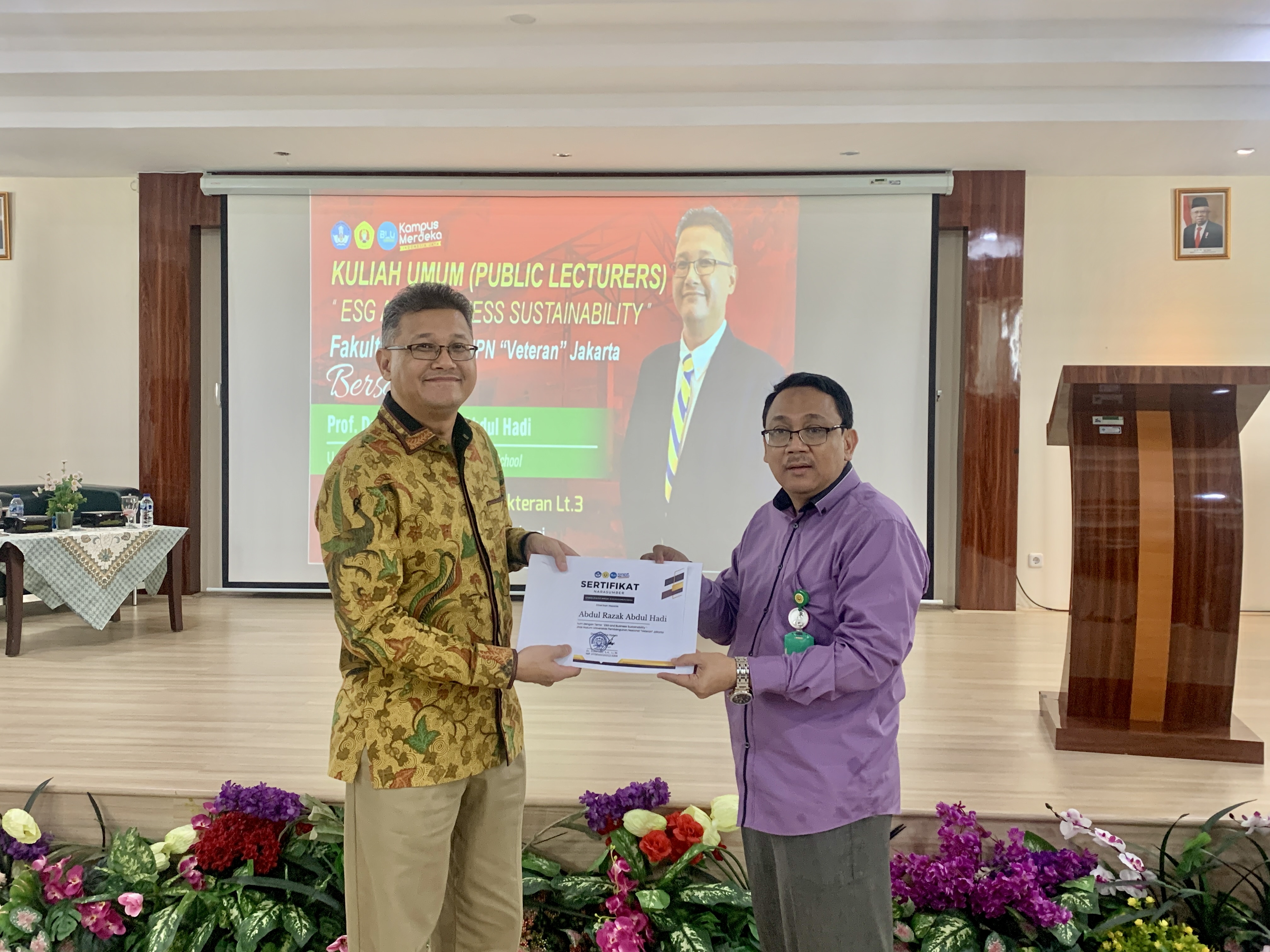Discussing “Enviromental, Social and Corporate Governance (ESG)”, FH UPNVJ held a public lecture with Prof. Dr. Abdul Razak Abdul Hadi from University Of Kuala Lumpur.
Wednesday, February 28, 2024- Public lecture activities that took place in the Auditorium of the UPN “Veteran” Jakarta medical faculty building which was attended by the ranks of the dean and students of the UPN “Veteran” Jakarta law faculty which was opened by remarks from Dr. Suherman, SH, LLM.
Dean of the Faculty of Law UPN “Veteran” Jakarta Dr. Suherman, S.H., LL.M thanked Prof. Dr. Abdul Razak Abdul Hadi for being a resource person for FH UPNVJ students to become learning knowledge from legal issues that occur in the general environment. The Dean invited Prof. Dr. Abdul Razak Abdul Hadi to give a presentation.
In this general lecture emphasizes Social & Corporate Environmental Governance and Creative Economy, The key success factor of this creative economy is the human factor, therefore HR development and talent management are very important barriers to creative services in developing countries: namely lack of basic skills, lack of digital infrastructure, trade restrictions (import activities), Prof.Dr. Abdul Razak Abdul Hadi Said Change Management (CM) Today, dynamic modern companies must be directed to adopt change readiness.
Change readiness is the Company’s ability to continuously initiate and respond to change in a way that creates profits, minimizes risks, and maintains financial performance. Organizations must constantly transform themselves to remain competitive because business success depends on the organization’s ability to adapt to environmental changes.
WHAT IS ESG? It is a set of standards for good corporate behavior and investors use this framework to evaluate the potential return on their investment. Environmental- how the company protects the environment (the company’s policy in addressing climate change issues, Social- how the company manages relationships with stakeholders (employees, suppliers, customers, and the communities in which the company conducts its business) Governance- how this relates to shareholder interests (shareholder rights, internal control, audit, leadership), In addition to this Prof.Dr. Abdul Razak Abdul Hadi said the Formal Definition of Motivation includes among others:
The process that drives individual creativity, direction and persistence of effort towards achieving organizational goals. This involves job satisfaction. Early theories of motivation Maslow’s Hierarchy of Needs, Two-Factor Theory Contemporary Motivation Theory Cognitive Evaluation Theory, Expectancy Theory.
As well as Quality Management, the constant achievement of customer satisfaction through continuous improvement of all organizational and business processes QM is related to OB since the drive for quality improvement requires the commitment of employees to optimize resources and ultimately strive to achieve organizational goals, and also Organizational Culture A system of shared values, and beliefs, that govern how people behave both in a business organization. Values.
Together these have a strong influence on people in the organization, as well as customer perceptions of the Company, In this General Lecture Prof.Dr. Abdul Razak Abdul Hadi Concluded into important points
- Environment, Social and Governance (ESG)
- Technology such as ICT (ERP / BDA / IR4.0 / AI / ML)
- Entrepreneurial Mindset (creative & socially conscious) Many studies show that these three factors are the main inputs and capital or investment funds are not a guarantee of business success The acquisition of good soft skills, technology and entrepreneurial mindset is a prerequisite for long-term financial sustainability.

